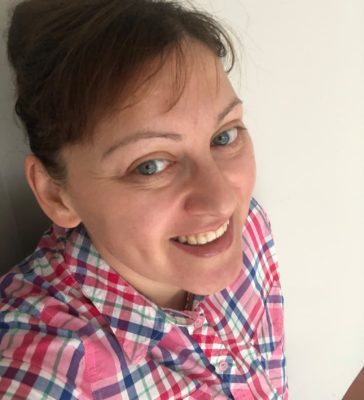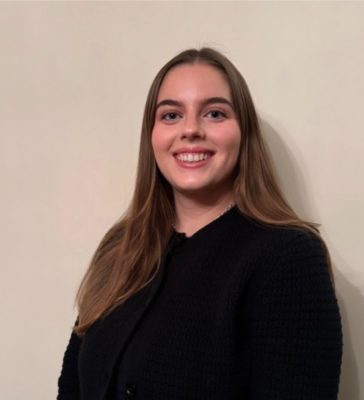
Efsevia Lasithiotaki
Current Employer/Organisation Name
State of Kuwait
What have you been doing since leaving Exeter, and what are you doing now?
I met my husband, moved to the Caucasus, learned Russian, moved to Greece to work with Arabic speaking refugees, worked for IRC, did research for the UN in Lesvos island, worked for the International Committee of the Red Cross in Greece, was responsible for education of refugee children in Athens region (Attica) while working for Save the Children International. We got a baby and stayed out of work for 2 years. then worked for Teleperformance, servicing over the phone English speaking people from all over the world, started working for the State of Kuwait in Athens, as local staff. We survived covid as a family and now struggle to make ends meet due to inflation.
Why did you choose this career? And what do you enjoy most about your work?
I was not given a chance to ‘choose a career’. I just make use of the available opportunities. The current position I am at has the following benefits: 1) they pay at the end of the month (in Greece you can work but not get paid at the end of the month. They may pay you few months later. You might not be paid at all. 2)the salary is double the basic salary in Greece. (For someone that has a PhD its the minimum…) 3)We get lots of vacation as we get to have the State of Kuwait holidays as well as the holidays of the Greek state 4) Most of the days I finish work at 3 in the afternoon and I can go spend time with my family.
Please tell us if you were a member of any societies, groups or sports clubs?
Yes, the Greek society.
Were you part of the Exeter Student Ambassador Scheme at any point during your studies?
Yes.
What did you enjoy most about your programme and what was the biggest highlight?
I enjoyed access to the libraries -online and en situ. When the library turned 24/7 I rejoiced. My supervisors supported me practically: they wrote recommendation letters for jobs, scholarships, and extra training. As a result I was given the chance to enhance my skills, gain valuable work experience, have the money to complete my education. The university supported me with dyslexia (for the first time in my life): I was diagnosed very late after having completed a degree in Durham and two masters in SOAS. It was only in Exeter that I had the time to work on myself to enhance my capacities.
What did you enjoy most about studying here?
I enjoyed very much working for Exeter University in several positions: as a resident Tutor for freshers, and INTO, at many different secretarial posts in the University and as a librarian in the libraries. The atmosphere amongst staff was enjoyable. I have learned so much. The university allowed me to get extensive IT training for free. The uni trained me in archiving. I was responsible for health and safety in the IAIS and they university paid for my training as a first aider. As a PHD student I was allocated an office in the Institute, which made me concentrate better. I kept my books and reading material there. We had a common area in the institute and a kitchen we could use. I used to keep salads in the fridge and prepare light meals that I enjoyed with friends. We even baked break in that kitchen with a bread maker! That was such fun! The natural environment is scenic, you can organize few hours breaks about the city of Exeter, at the beach, or even Just walk around the beautiful gardens of the uni. Cinema: the cinema society would advertise interesting films that I watched with friends. People: oh I met wonderful people in Exeter, I made friends for life. Its not just the different backgrounds people have, the diversity you get, or the heated discussions we had. Its the quality of the people, their kindness and support. Proximity: Everything is walking distance in Exeter. You need 20 min to get from your school to the city centre, do shopping, pay bills so on so forth. Forget one hour commuting ! Isn’t that great ? Shopping: all big stores you find in London you get in Exeter as well. Only with a much more human face: you get to make friends with XX computer company and when you enter they greet you by name
Why did you choose to study at Exeter?
Proximity to the beach, good weather, high ranking Institute, affordable (compared to London), work opportunities.
What skills and experiences have been most useful for your career?
Work ethics: while working for the University we were back to back with colleagues. Not available in all settings: backstabbing is common practice in some parts of the world. PHD Training: Exeter is not just a prestigious Uni known worldwide. It gives you the tools to become a better person, a sound researcher, a well read academic. On hands training: May that be IT, First Aider training, at Archiving or Library work, you have options, in theory and practice. Presenting: So many papers of mine were accepted worldwide, that I presented in so many occasions. This turned the blushing little girl to a strong presenter standing for her thoughts. Writing articles: peer support, supervisors help, online and en situ libraries all helped me write and publish my work.
What advice would you give to a current student who wishes to pursue your career?
Go for it. You can gain work experience, make friends for life, have fun and all that while getting an academically high standard degree you can afford.
What are your plans for the future?
I would love to do social research, write articles, present in conferences, teach minorities/refugees/people in need. I am currently applying for such positions.

